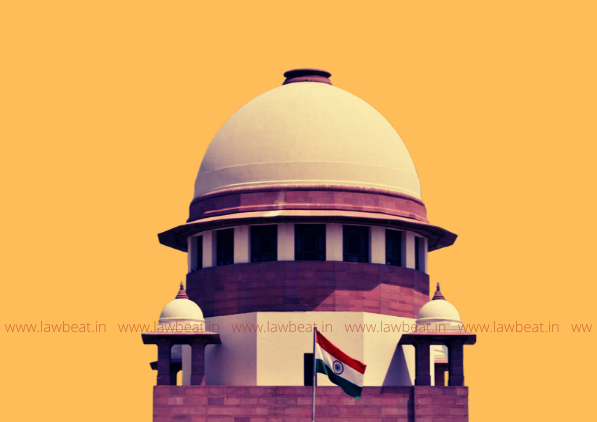“Section 124A a disproportionate imposition on Freedom Of Expression”: Supreme Court Issues Notice In Plea Challenging Constitutional Validity of Sedition Law

Supreme Court in its hearing on Friday, agreed to examine the Constitutional Validity of the Law on Sedition.
A Full Bench of Justice UU Lalit, Justice Indira Banerjee and Justice KM Joseph, issued notice in the matter of Kishorechandra Wangkhemcha v. Union of India, seeking to declare Section 124A IPC, 1860, Unconstitutional and Void.
The petitioner highlights several issues related to the offence of Sedition, including, disproportionate imposition & misuse of Section124A, India’s International Obligations under ICCPR, position in other jurisdictions, view taken by the members in Constituent Assembly Debates and the political nature of the said provision in India.
“According to the data compiled by the National Crime Records Bureau (NCRB), the number of sedition cases registered across the country doubled from 35 in 2016 to 75 in 2018. However, no charge-sheets were filed by the police in over 70% of the cases, and only four of the 43 cases where trial has been completed resulted in convictions. The abysmally low conviction rate is evidence that the police never had any evidence against individuals facing sedition charges to begin with”, the plea states.
Grounds preferred inter-alia by the petitioners;
- Section 124A violates Article 19(1)(a) of the Constitution of India, restricting fundamental right to free speech and expression.
- Section 124A is unnecessary in terms of protecting State security and public disorder.
- There exists no urgency justifying the employment of Section 124A, given that the interests of State security and public order are sufficiently protected elsewhere in Indian law.
- Section 124A is a disproportionate imposition on the freedom of expression and fails to constitute the least restrictive means to protect State security and public disorder in this regard.
- The said provision fails to meet the international standard of necessity which India is under the obligation as a party member to the ICCPR.
- The terms ‘intention’ and ‘tendency’ in the interpretation of Section 124A are so subjective that the law is uncertain and are an invitation to abuse by authorities.
- Vagueness of Section 124A is frequently abused and misapplied in India.
Hon’ble member of the Constituent Assembly, Shri KM Munshi, quoted the following words of the then Chief Justice of India, in Niharendu Dutt Majumdar v. King wherein a distinction was made between “What sedition meant when the Indian Penal Code was enacted and Sedition as understood in 1942”;
“This sedition is not made an offence in order to minister to the wounded vanity of Governments but because where Government and the law ceases to be obeyed because no respect is felt any longer for them, only anarchy can follow. Public disorder, or the reasonable anticipation or likelihood of public disorder is thus the gist of the offence. The acts or words complained of must either incite to disorder or must be such as to satisfy reasonable men that that is their intention or tendency.”
